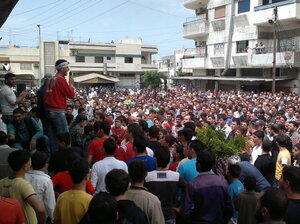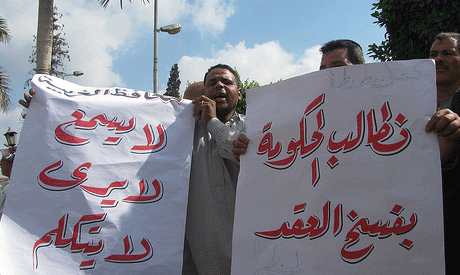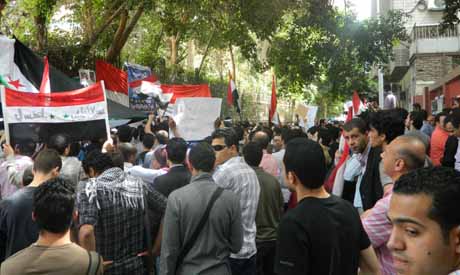It is time once again to prepare for another long presidential electoral season, a season which will last just shy of 20 months. Looking at the field of potential candidates, we see many of the same faces we saw in 2008, with a few notable exceptions. I, for one, think that it is time to retire at least some of these political has-beens and bring in some fresh blood with fresh ideas.
In the Republican corner we have:
Mitt Romney, former governor of Massachusetts. Mr. Romney is 63 years old, a member of the Church of Jesus Christ of Latter Day Saints, and currently works giving keynote speeches and doing fundraising for the Republican party. Romney was a 2008 presidential candidate.
Mike Huckabee, former governor of Arkansas. Mr. Huckabee is 55 years old, a member of the Southern Baptist Church, and currently works as the host of Huckabee on Fox News. Huckabee was a presidential candidate in 2008.

Sarah Palin, former governor of Alaska. Ms. Palin is 46 years old, a member of a non-denominational Christian church, and currently works as a reality TV show host and Fox News contributor. Palin was a vice presidential candidate in 2008.
Tim Pawlenty, governor of Minnesota. Mr. Pawlenty is 50 years old, and a member of the Baptist Church. Pawlenty has never run for president.
Newt Gingrich, former speaker of the House. Mr. Gingrich is 67 years old, a member of the Roman Catholic Church, and currently works as Chairman, American Solutions for Winning the Future; and a college professor. Gingrich has never run for president.
Mitch Daniels, governor of Indiana. Mr. Daniels is 61 years old, and a member of the Presbyterian Church. Daniels has never run for president.
Donald Trump, real estate developer, and reality TV show star. Mr. Trump is 64 years old, a member of the Presbyterian Church, and currently works as Chairman and CEO of the Trump Organization. Trump has never run for president.
Michele Bachmann, congresswoman from Minnesota. Ms. Bachmann is 54 years old, and a member of the Lutheran Church. Bachmann has never run for president.
Ron Paul, a congressman from Texas. Mr. Paul is 75 years old, and a member of the Baptist Church. Paul ran for president in 1988 as a Libertarian and again in 2008 as a Republican.
These are just some of the potential candidates in 2012, this however, is not an exhaustive list. Some other notables are John Bolton, former U.S. Ambassador to the United Nations, Rick Santorum, former senator from Pennsylvania, and Jon Huntsman, former U.S. Ambassador to China, among others.
From first appearances, there does not seem to be a standout in this group strong enough to unseat our sitting president, Barack Obama. What we have is a diluted pool from which to choose from with not a single candidate as I see it, capable of winning.
With Republican candidates catering to select groups of constituents, such as the Tea Party, by Palin and Bachmann, and the religious right by candidate Huckabee to name a few, who is left to satisfy the majority of Republicans and Republican-leaning independents? I contend that there is no one in the Republican list that would be electable.
On the democratic side we have our current president, Barack Obama.

It would almost take an act of God to prevent Mr. Obama from being renominated by the Democrats. Based on his performance in office to date, I would be extremely hesitant to vote for President Obama.
If the Republicans are to have any chance of unseating Obama, they will have to field someone far stronger, more likable, and highly respected by the American public than those they are offering now. He or she will have to tackle and follow through on the issues that are most important to all citizens, such as unemployment, immigration, healthcare, taxes, and education, not just Republican issues. Candidates of both parties have always run on platforms that claim to address these issues, but once elected, they fall by the wayside and business in Washington carries on as usual.
The bottom line is that it appears we are going to have yet another election where we pick the lesser of two evils to be the leader of the free world. When our choices include reality TV show hosts, ultra-conservative talk show hosts, radical Tea Party-backed conservatives and smooth-talking left wing used car salesman, we as a nation are doomed.
If you are like me, you don’t see any hope of change in 2012 with the current pool of potential candidates, Republican or Democrat. When will we as Americans wake up and demand more from our elected officials, especially from our president.
Who would you like to see run in 2012?
Article first published as Election 2012: The Lesser of Two Evils — Again on Blogcritics.


















